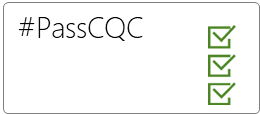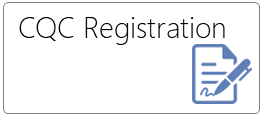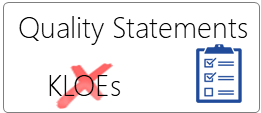
On 1 December 2012, the functions of the CRB (Criminal Records Bureau) and the ISA (Independent Safeguarding Authority) merged and are now carried out by the DBS (Disclosure and Barring Service).
As part of your initial applications made to the CQC, you would have undergone a CRB Check (criminal records bureau check). Any change in registered manager will also require the person to now undergo a DBS check.
Who needs to complete the CQC DBS check
The following people are usually required to complete the CQC DBS check process:
- Individuals applying for registration to carry on or manage a care service
- All Partners
- Registered Managers
Note:From 1 April 2013, all GP providers and registered managers that make an application to register with the CQC must have a CQC-countersigned DBS check. GMC numbers in lieu of a CQC-countersigned DBS check is no longer accepted.
Also note that Nominated individuals (usually a Practice Manager) do not need a CQC-countersigned DBS check. Providers must, however, carry out their own DBS checks on all their nominated individuals and may be asked to supply evidence of these.
DBS checks when employing new staff
The CQC say Health or Adult Social care service providers are responsible for checking the suitability of their own staff.
Whilst it is not a CQC requirement, the NHS Employment Check Standards, recommends that everyone employed for the purpose of carrying on a regulated activity under the Health and Social Care, ensure that they carry out appropriate DBS checks on all applicants for any position within their practice that qualifies for such a check. This should include health visitors, nursing staff, contracted & temporary staff, practitioners working under practising privileges, volunteers, students and so on.
The requirement for a check and level of check is dependent on the roles and responsibilities of the job and the type of contact with vulnerable groups.
- If the practice only treats adults, then staff who actually provide healthcare will require DBS checks - not the receptionists, etc.
- If the practice treats children as well, any staff member who potentially comes into contact with the children may be eligible for the DBS check.
DBS checks for Staff who have been employed for some time
There is no legal requirement to carry out retrospective or periodic DBS checks. Employers can ask staff to apply for a DBS certificate retrospectively whenever they think it is necessary.
If a staff member has been employed with the provider for a long time (and therefore may not have a DBS check), the appropriateness of retrospective checks might be considered if there are other concerns about the provider's recruitment procedures or if concerns are raised with regards to specific members of staff.
What actions will the CQC take when they find a breach of this regulation
"The action we [the CQC] take will be proportionate to the impact that the breach has on the people who use the service and how serious it is".
The key thing is that the provider must be able to demonstrate they have effective and robust recruitment procedures in place for all new staff, which will include identifying if staff are eligible for DBS checks, as well as checking their references, employment history etc.
How long is a DBS check valid for?
There is no requirement for a service that directly employs its own staff to repeat disclosure and barring checks within a set period. Further checks on staff will depend on the registered person judging that this is necessary or advisable after a certain period.
When making their decision they should take into account the work they do, the potential scope for abuse, and the stability of the workforce.
Applying for a DBS check
To register with the CQC disclosure service click on the link below:







